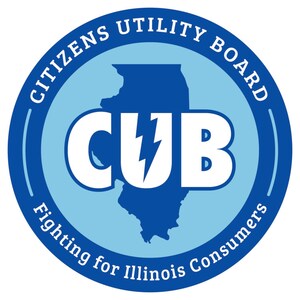CUB To Educate Chicagoans On Electricity Referendum As Poll Shows Voters In Dark On Issue With Big Pocketbook Ramifications
CHICAGO, Oct. 24, 2012 /PRNewswire-USNewswire/ -- Concerned by recent polling that shows seven out of 10 Chicago voters know little or nothing about a referendum they will vote on Nov. 6, the Citizens Utility Board (CUB) Wednesday opened an online "Chicago Power Center" to educate residents about the measure, which could have a major impact on their electric bills.
At a news conference, CUB Executive Director David Kolata urged Chicago residents to use the center, at www.CitizensUtilityBoard.org, to learn about the referendum question: "Shall the City of Chicago have the authority to arrange for the supply of electricity for its residential and small commercial retail customers who have not opted out of such program?"
"It's unusual for Chicagoans to face a vote that will have such a direct impact on their electric bills," said Kolata, whose consumer group is officially neutral on the referendum. "This is a major pocketbook issue for electric customers, and we want to do everything we can to avoid the possibility that the first time somebody learns about it is when they enter the voting booth."
Thanks to a 2009 state law, "municipal aggregation" allows local governments to negotiate power prices with Commonwealth Edison competitors on behalf of their residents. If a community passes a referendum, it can automatically switch residents to a new supplier, while allowing those who choose to opt out.
ComEd customers now have up to three options for their electric supplier. They can stay with ComEd, choose among dozens of alternative suppliers themselves, or let their community choose a supplier through aggregation.
On Nov. 6, Chicago and 81 other communities in ComEd territory will vote on aggregation referenda. Residents in the 175 ComEd communities that already have launched aggregation are paying an average of 4.83 cents per kilowatt-hour (kWh)—from 6.23 cents per kWh in Fulton to 4.035 cents per kWh in Wilmette. That's up to 50 percent off ComEd's rate of 8.32 cents per kWh through May of 2013. But the window of savings may be closing.
Aggregation has exploded in recent years because ComEd has been locked into higher-than-market-priced contracts that have artificially elevated its power prices. The last of those contracts expire by June of 2013, and ComEd's price could drop significantly then. So while municipal aggregation has delivered savings in the short term, it remains to be seen if it can give consumers long-term savings. That's key considering more than 1 million Illinois households, most in ComEd territory, have switched to unregulated suppliers, largely due to aggregation.
Kolata said a recent poll by the Environmental Law & Policy Center heightened CUB's concerns about consumer confusion. Among 600 registered Chicago voters, 25 percent said they knew little about aggregation, and another 44 percent said they knew nothing about the topic.
CUB's online center will give Chicagoans an easy-to-understand explanation of municipal aggregation from a neutral source, including nuts-and-bolts details such as how much other suburbs are paying for electricity and how that compares with ComEd's price. Among the key points Windy City residents should know before they walk into the voting booth:
*Even if the referendum is approved and Chicago moves forward with aggregation, residents who don't want to participate will have two opportunities to opt out of the program.
*Chicago consumers will still be ComEd customers, even if they switch power suppliers. While municipal aggregation means another company is supplying the electricity, ComEd will still bill customers for delivering electricity to their homes. That means customers will still call ComEd if there's a power outage and they won't avoid ComEd delivery rate hikes, which the utility will periodically request before the Illinois Commerce Commission.
*Short-term savings are likely, but long-term savings are not guaranteed. ComEd's power prices should drop significantly in June of 2013. Given that date, Kolata said it is key that communities develop creative, robust efficiency programs as part of their energy plans, to help residents protect their savings by wasting less electricity. It's also key that residents ask their local leaders a lot of questions. CUB's center includes a checklist of questions Chicago residents should ask if a referendum passes, including: If ComEd's rates drop, will I be able to leave the alternative supplier without paying an exit fee?
CUB is Illinois' leading nonprofit utility watchdog organization. Created by the Illinois Legislature, CUB opened its doors in 1984 to represent the interests of residential and small-business utility customers. Since then, CUB has saved consumers more than $10 billion by helping to block rate hikes and secure consumer refunds. For more information, call 1-800-669-5556, or visit CUB's award-winning website, www.CitizensUtilityBoard.org.
SOURCE Citizens Utility Board
WANT YOUR COMPANY'S NEWS FEATURED ON PRNEWSWIRE.COM?
Newsrooms &
Influencers
Digital Media
Outlets
Journalists
Opted In





Share this article